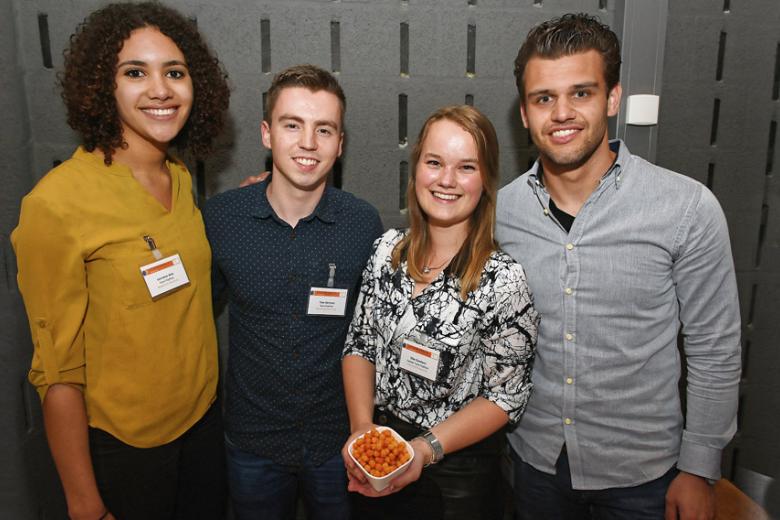Nearly one million euros to cardiac arrhythmia research
Thanks to a subsidy of almost one million euros from the Netherlands Heart Foundation, Prof. dr. Paul Volders and his fellow researcher Dr. Matthijs Cluitmans (who is also a DKE Alumnus) will be able to expand their research into a specific cardiac arrhythmia disorder, known as ventricular fibrillation. The two cardiologists are hoping that a new technique called electrocardiographic imaging (ECGI) as well as hundreds of patients will help them identify the causes of this type of arrhythmia.
Prof. Volders has spearheaded the project, carried out in collaboration with the University Medical Centres of Maastricht, Utrecht and Amsterdam. These centres will use a newly created database of patients with poorly understood ventricular fibrillation, and their relatives. During the project, the database will be expanded with data from patients and their relatives from all over the Netherlands. The application of the new ECGI imaging technology will allow even more detailed mapping of irregular heartbeats.
Dr. Cluijtmans on ECGI
Matthijs Cluitmans obtained his doctorate last year under the supervision of both Prof. Volders and Prof. Ralf Peeters of the Department Data Science and Knowledge Engineering (DKE) with a thesis about ECGI. The grant from the Netherlands Heart Foundation will allow him to deepen his research. "In Maastricht, we have so far mapped several dozens of patients with the help of ECGI, which is actually an extensive electrocardiogram. We use many more electrodes on the body and we also make a CT scan of the patient in order to determine accurately where the electrical heart activity comes from. That's why the examination takes a few hours per patient, and the analysis is also time-consuming."
ECGI enables researchers to look at cardiac arrhythmias at a more detailed level without resorting to internal measurements. "By examining hundreds of people now, in collaboration with the two other centres, we can make a better assessment of the outcome; whether it points to a disorder or not." In addition, it's a great way to introduce ECGI technology outside of Maastricht.
Prof. Volders on ventricular fibrillation
Ventricular fibrillation is a type of cardiac arrhythmia which is often not fully understood. The disorder can cause young people to collapse on a football pitch, for example. "In many cases, we have to tell relatives that we simply don’t know what has caused the ventricular fibrillation," Volders says. "There are indications that genetic factors may play a part. Acquired factors, such as inflammation of the heart muscle, also appear to trigger ventricular fibrillation. We hope that 3D mapping of the beating heart with ECGI will enable us to detect patients at an earlier stage, so that they can get preventive treatment."
Also read
-
Metabolism-based personalised diet better for health
For the first time, there is scientific evidence that a personalised diet based on a person's metabolic profile leads to better health. This is an important step towards more effective nutritional interventions aimed at improving health and preventing chronic diseases.
-
Do algorithms help make healthcare better?
How can you further improve healthcare with the use of ‘big data’? That question is central to many scientific studies worldwide. At Maastricht University, the research group led by Professor of Clinical Data Sciences André Dekker is also working on answers to this question.
-
Campus Venlo students on to finals of European food innovation competition
The three student teams from the master's Health Food Innovation Management (Campus Venlo) who dominated the preliminary rounds a few weeks ago, drew the first, second and third place in the semi-finals of the Ecotrophelia food innovation contest.